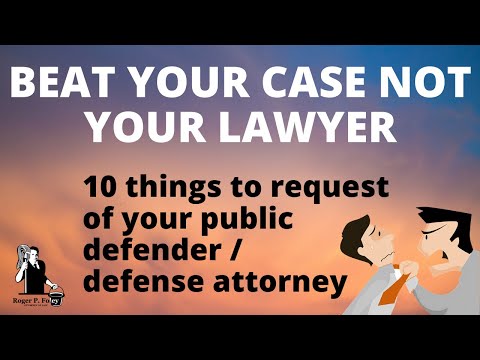
Welcome to this informative article on the right to legal counsel in the United States! In our journey to understand this crucial aspect of the justice system, it is important to note that the information presented here should be used for general educational purposes only. As with any legal matter, it is essential to consult multiple sources and seek advice from qualified legal professionals to ensure accuracy and applicability to your specific situation. With that in mind, let’s delve into the intricacies of when defendants must be provided with assistance in the form of legal counsel.
Understanding the Right to Legal Representation in the US Judicial System
Understanding the Right to Legal Counsel: When Must Defendants be Provided with Assistance?
The right to legal counsel is a fundamental aspect of the US judicial system, ensuring that defendants are given fair representation and a fair trial. This right is enshrined in the Sixth Amendment of the United States Constitution, which states that “In all criminal prosecutions, the accused shall enjoy the right to have the Assistance of Counsel for his defense.”
📋 Content in this article
The right to legal counsel is essential in protecting the rights of individuals who are accused of committing a crime. It ensures that defendants have access to legal advice and representation throughout the criminal justice process. However, it is important to understand that this right is not absolute and there are certain circumstances under which defendants must be provided with legal assistance.
Understanding the 2 Prong Test: Evaluating the Effectiveness of Defense Counsel in Legal Cases
Understanding the 2 Prong Test: Evaluating the Effectiveness of Defense Counsel in Legal Cases
In the United States, the right to legal counsel is a fundamental aspect of the criminal justice system. The Sixth Amendment of the U.S. Constitution guarantees that “in all criminal prosecutions, the accused shall enjoy the right to have the assistance of counsel for his defense.” This means that individuals facing criminal charges have the right to be represented by an attorney throughout the entire legal process.
However, it is not enough for defendants to simply have an attorney. The quality of legal representation is equally important. In order to ensure that defendants receive effective assistance of counsel, courts apply a two-pronged test known as the “Strickland test” or the “2 prong test.”
The first prong of the test requires defendants to demonstrate that their attorney’s performance fell below an objective standard of reasonableness. This means that a defendant must show that their attorney made errors or omissions that were so serious that they failed to provide the level of representation expected from a competent lawyer. Examples of such errors might include failing to investigate crucial evidence, failing to call witnesses, or failing to challenge the admissibility of certain evidence.
To meet this prong, defendants must overcome a strong presumption that their attorney’s conduct was reasonable. Courts understand that lawyers have a wide range of strategies and tactics available to them, and they must respect the attorney’s professional judgment in making decisions about how to handle a case.
The second prong of the test requires defendants to show that they were prejudiced by their attorney’s deficient performance. In other words, defendants must demonstrate that there is a reasonable probability that, but for their attorney’s errors or omissions, the outcome of their case would have been different. This means that defendants must show that their attorney’s mistakes had a substantial impact on the outcome of their trial or sentencing.
Title: Understanding the Right to Legal Counsel: When Must Defendants be Provided with Assistance?
Introduction:
In the United States, the right to legal counsel is a fundamental aspect of the criminal justice system. This right ensures that individuals accused of committing a crime have access to competent legal representation to safeguard their interests. The importance of staying current on this topic cannot be overstated, as the laws governing the right to legal counsel are subject to change and interpretation. It is essential for both legal professionals and individuals involved in criminal proceedings to continually verify and cross-reference the information presented in this article with reliable and up-to-date sources.
1. The Sixth Amendment and the Right to Counsel:
The right to legal counsel in the United States is primarily rooted in the Sixth Amendment of the Constitution. The relevant clause states that “the accused shall enjoy the right…to have the Assistance of Counsel for his defense.” This provision guarantees that individuals facing criminal charges are entitled to adequate legal representation throughout all stages of the proceedings.
2. Gideon v. Wainwright and the Right to Counsel for Indigent Defendants:
The landmark Supreme Court case of Gideon v. Wainwright in 1963 solidified the right to counsel for indigent defendants. In this case, the Court held that the Constitution requires states to provide legal counsel to individuals who are unable to afford it themselves. This decision established that access to competent representation is a fundamental component of due process.
3. The Application of the Right to Counsel:
The right to counsel applies at critical stages of criminal proceedings, including pre-trial, trial, and post-trial proceedings. These stages encompass various events such as interrogation, arraignment, plea negotiations, trial, sentencing, and appeals. During these stages, defendants have the right to consult with an attorney, have their attorney present during questioning, receive advice on legal matters, and have their attorney advocate for them effectively.
4.
